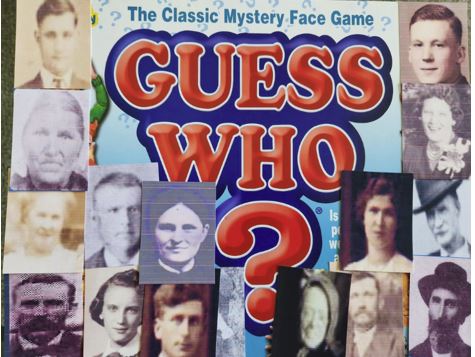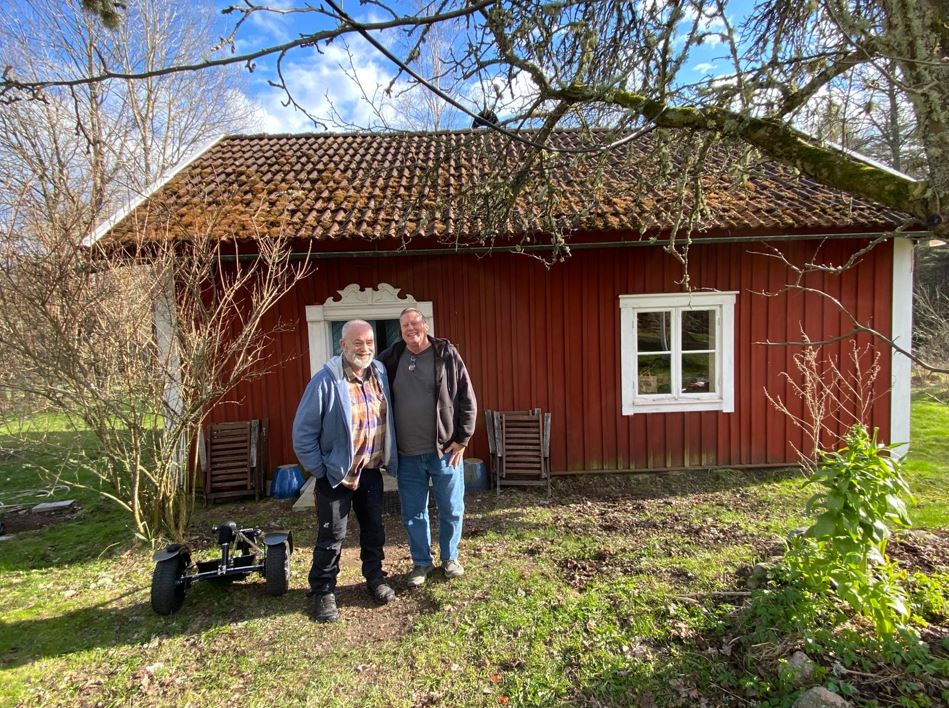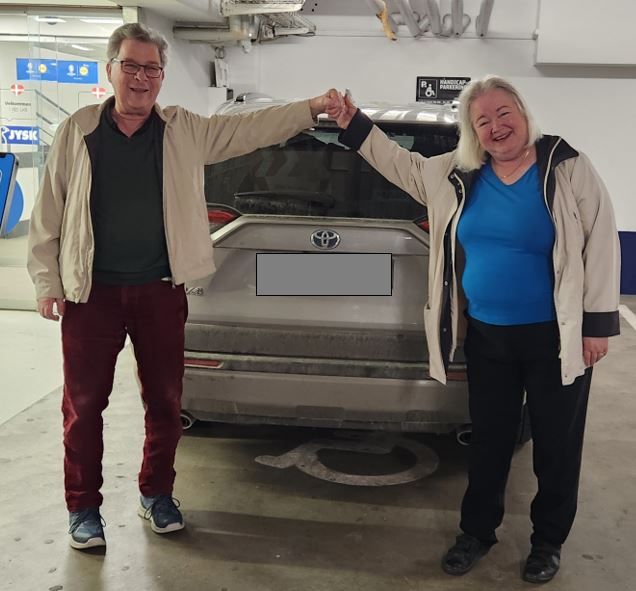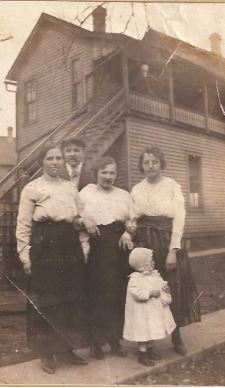
After returning from Sweden, I spent four days researching in the Chicagoland area. Both my maternal side and both of my husband’s sides lived in Chicago for a time and the Swedish trip unveiled some new mysteries that made me want to find answers there. Nothing online so boots-on-the-ground was needed. The next few weeks I’ll be writing about my discoveries and the steps I took to get the answers.
Today, I’ve shared the photo above that was taken in Chicago circa 1919. From left to right is an unnamed neighbor of my family, Great Uncle Joseph Koss, Maternal Grandma Mary Koss, and my mother’s Godmother, known as Kuma. The little girl is my mom. The photo was undated but I know it is from the spring of 1919 for several reasons.
First, my mom is standing on her own. She was born on 14 April 1918 so she is likely about a year old. My grandmother was pregnant in the photo but barely showing; her second child was born in November 1919 in Gary, Lake, Indiana. The family moved shortly after the photo was taken. By the way they are dressed, it is spring – no heavy coats but long sleeves and my mom in a little jacket.
My grandmother had told me it was taken outside of their Pullman apartment building in Chicago. The family story was that both my great grandfather and his son-in-law, who was to become my grandfather, emigrated separately from Dubranec, Croatia with the intent of settling in Pennsylvania where they had heard there was work in the steel mills. When they arrived, however, the mills weren’t hiring so they became employed by the Pullman Company. (This is problem #1 – Pullman didn’t hire in Pennsylvania). They worked on the lines all the way to California and when the job ended, were shipped back to Chicago to work on the canal. (Problem #2-Pullman only hired for working on the cars, not on the lines). It was at that time when my great grandfather sent for his wife, Anna, and two children, Mary and Joseph, to come join him in America. The story goes on to say since he was employed by Pullman he was able to take the train to New York to meet his family and escort them back to Chicago. (Problem #3 – nothing shows that this was a perk of working for Pullman). Well, Gary, actually. He was afraid the big city would intimidate them so he moved them for six months to Glen Park, which eventually became part of Gary so that they could learn English. My grandmother finished 8th grade, the family reunited and lived in Pullman housing in Chicago until they relocated back to Gary because there was work at U.S. Steel in 1919.
I love verifying family stories and I thought this one would be a no brainer. Many of Pullman’s employment records exist at the South Suburban Genealogical and Historical Society in Hazel Crest. Newberry Library also has some ledgers and a box full. How hard could this be?
The librarians at South Suburban were absolutely wonderful! I had not completed a form for them that is required for lookups and I did not expect them to drop everything to help me out. There were several John and Joseph Koss’s but none were my relatives. One was Russian, the Austria-Hungarian became employed in 1925 long after my family had moved on, and another was Slovenian. Sigh.
I had shown the photo and that was when I learned that Pullman had once been its own town but over the years, became a part of Chicago. I also learned that Pullman did not hire laborers. Oh, dear, that was what my ancestors were considered. Another fallacy in the story is that Pullman was somehow involved with the canal building – the Illinois Michigan Canal – but that wasn’t the case.
Pullman did need working railroad tracks, however, and it was thought that perhaps my family had been hired by a company to maintain the rail lines. This makes sense as my immigrants would not likely have understood the concept of subcontractors.
These findings redirected my research question from Finding the Pullman Employment Records for Joseph and John Koss to Finding The Names of Company’s Who Maintained Railroad Tracks in the Pullman, Chicago Area between 1912-1919.
Apparently, no one has asked that question to the many archives where I looked – South Suburban, Chicago History Museum, Henry Washington Public Library, Newberry Library, and IRAD. So, this item remains on my to-do list!
I was also interested in finding the location of the photo as my mother was said to have been born in that apartment house. My grandmother did not trust hospitals; she swore they stole babies. My cousins and I kidded her for years about that only to discover with DNA, that she had been correct. Too many babies had been switched at birth.
For locating the address, I turned to city directories that were not online. There is nothing like physically touching an ancient book that just might provide the answer to your burning question! Luckily, I discovered that there was a listing for Joseph Koss, laborer, who lived at 12311 South State Street in the 1917 edition. Better yet, he was the only Joseph Koss. I had been told that the whole family lived in the same apartment so by not finding John, the narrative was confirmed. In this particular city directory, only one name, typically a male, was listed per address.
Having an address was wonderful as by checking Google Maps and the Cook County Property Appraiser we quickly determined that the apartment building was still in existence and hadn’t changed much in the last 100+ years. I finally have the location of my mother’s birth! The location even ties in with the church, St. Salomea’s, where she was christened. The church wasn’t far and looking up the church history on flickr explained its need to be built in the Pullman area.
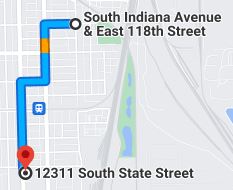
Distance from Apartment to Church, Google Earth
More work is needed to find the company that employed my ancestors. Newberry’s ledgers had Koss’ but they weren’t mine.
I have a request in with IRAD for contractors who worked in 1918-1919 on the Illinois Michigan Canal. I’d love to check out their perks, did they provide discounted train tickets? How did my great grandparent get an apartment in Pullman housing if he wasn’t employed with the company? Sometimes one find leads to more questions! Next week, I’ll tell you about what I learned at a cemetery.

